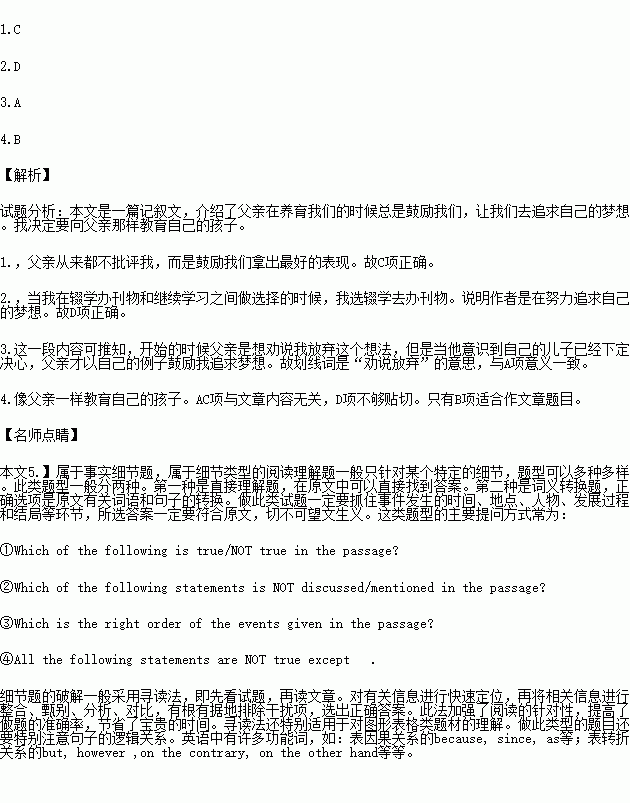题目内容
My sister and I grew up in a little village in England. Our father was a struggling lawyer, but I always knew he was special. He never criticized us, but used praise to bring out our best. He’d say, “If you pour water on flowers, they flourish(茂盛). If you don’t give them water, they die.” I remember as a child I said something unkind about somebody, and my father said, “Any time you say something unpleasant about somebody else, it’s a reflection of you.” He explained that if I looked for the best in people, I would get the best in return. From then on I’ve always tried to follow the principle in my life and later in running my company.
Dad’s also always very understanding. At 15, I started a magazine. It was taking up a great deal of my time, and the headmaster of my school gave me a choice: stay in school or leave to work on my magazine.
I decided to leave, and Dad tried to stay me from the decision at first, as any good father would. When he realized I had made up my mind, he said, “Richard, when I was 23, my dad persuaded me to go into law. And I’ve always regretted it. I wanted to be a biologist, but I didn’t pursue my dream. You know what you want. Go fulfill it.”
As it turned out, my little publication went on to become Student, a national magazine in the U.K.. My wife and I have two children, and I’d like to think we are bringing them up in the same way Dad raised me.
1.What can we know about the author’s father?
A. He seldom looked for the best.
B. He was a specialist in law.
C. He usually encouraged kids.
D. He was a father without principles.
2.The author left school at 15 mainly because ________.
A. the school forced him to
B. he had to work for money
C. his father understood him
D. He had a dream to fulfill
3.The underlined phrase in Paragraph 3 can be replaced by ________.
A. persuade me out ofB. accuse me of
C. remind me ofD. agree with me on
4.What can be a suitable title for the text?
A. Be nice to othersB. My Respectable Father
C. My Happy ChildhoodD. Go Fulfill Your Dream

